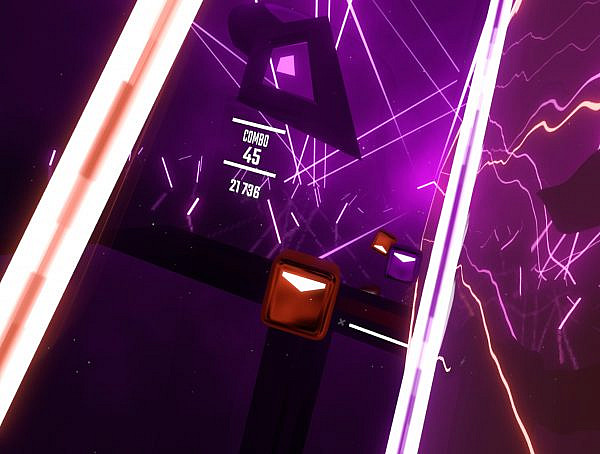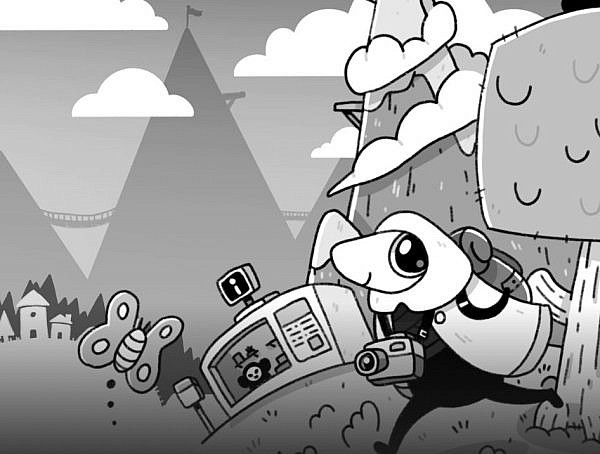Challenging the concept of immersion, flow and presence
In his article titled Illusion Master: Extending Self-Presence and Challenging Immersion in and through Digital Games, Josef Florian Micallef, introduces Objective self-presence, which is an extension of the concept of self-presence and challenges the traditional concepts of immersion and presence and self-presence in games. The research article is divided into two parts: In the first part, Micallef defines the concepts of presence, self-presence, immersion and illusion. In the second he uses the game Illusion Master as a case example where the player has to break their immersion and become objectively self-present in order to beat the game.
Immersion as a broad concept has been applied to many media experiences, including film, television and games. It is characterized by diminishing critical distance to what is shown and increasing emotional involvement in what is happening. Immersion can be linked with the term suspension of disbelief, which means that if a writer – or in this case a video game designer – is able to fill the work with human interest and a semblance of truth, a reader would suspend the disbelief of the fictional work, and instead embrace it. There are a number of similarities between the concepts of immersion and flow, which is described as the state in which individuals are so involved in an activity that nothing else seems to matter. In a state of flow, the players are immersed and highly involved with full focus in the activities presented in the game. One of the shared characteristics between immersion and flow is the loss of self-awareness and being cut off from reality.
The subject of illusion shares a lot of similarities with immersion. It manifests in two forms: conscious illusion and unconscious illusion. Conscious illusion happens when a reader (or a player) feels they are seeing what is being represented in the virtual work. Using Illusion Master as an example, the players see that they are playing the game as a magician. When the illusion is conscious, the players know that there is no magician beyond the projected image. During unconscious illusion, players are totally captivated by the virtual environment, and they are totally unaware of this as players outside the virtual environment. In unconscious illusion, players are immersed and self-present in the virtual environment.
The concept of the feeling of presence in virtual technologies is defined as the extent to which one feels present in the mediated environment – such as a video game – rather than the immediate physical environment. In relation to video games, self-presence, on the other hand, is simply defined as the way players feel as if their virtual self is their actual self. The definition of self-presence can be extended to objective self-presence, which means a state in which players become reflectively conscious. It can be thought as an additional layer where the player becomes aware that they are playing a game and are able to separate their virtual and actual selves. When playing a game, players may still become aware of the virtual experience of digital games. They might not constantly be reflectively conscious of the fact that they are human entities outside the game, but they have a potential to become aware of the artificiality of the play situation at all times.
Illusion Master is used as an example game to challenge the concepts of immersion, self-presence and illusion. It is a short casual 2D-platformer in which the players take control of an unnamed magician on a quest to retrieve his stolen magic chest, battling ghosts along the way. At the end of the game, the magician faces a bigger version of what seems to be an evil clone of the same magician, who claims to hold the stolen chest and the power of illusion within. The only way to defeat the evil clone is for the players to step out of the ‘immersion’ created by the game. If the players realize to stop playing, the evil magician finally dies and the stolen magic chest appears. Should the players keep interacting by fighting the evil magician, then they are perpetuating their immersion within the game. The player’s immersion in the game is ultimately what the evil magician requires to remain alive and hold on to the power of illusion. The reason why the evil magician dies when the player stops playing is because he no longer has the power to immerse the player. Thus, it is the player who can decide whether or not to be immersed in the game. This phenomenon is experienced through the player becoming objectively self-present, driving home Micallef’s idea of expanding the idea of self-presence.
Key Information:
Original Article: Illusion Master: Extending Self-Presence and Challenging Immersion in and through Digital Games
Author: Josef Florian Micallef
Published: G|A|M|E – n.5/2016
Original article accessible from: https://www.gamejournal.it/illusion-master-extending-self-presence-and-challenging-immersion-in-and-through-digital-games/
You might also like
More from Game Research Highlights
How do you want to do this? – A look into the therapeutic uses of role-playing games
Can playing RPGs contribute positively to your wellbeing? A recent study aims to find out how RPGs are being used …
Eldritch horrors and tentacles – Defining what “Lovecraftian” is in games
H.P. Lovecrafts legacy lives today in the shared world of Cthulhu Mythos and its iconic monsters. Prema Arasu defines the …
Are Souls Games the Contemporary Myths?
Dom Ford’s Approaching FromSoftware’s Souls Games as Myth reveals the Souls series as a modern mythology where gods fall, desires …
















